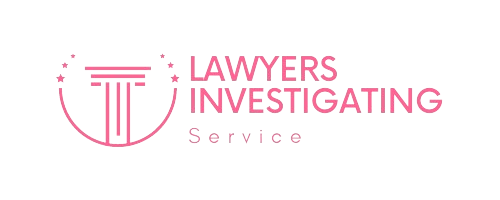In the intricate world of legal proceedings, the role of professional investigative support proves invaluable to lawyers. The synergy between the two professions uncovers concealed evidence, validates facts, and enhances courtroom strategies, thereby raising the likelihood of successful outcomes. As we unpack the distinct ways in which investigative support bolsters legal practice, we will also explore how this alliance mitigates potential risks and liabilities. The implications of this partnership are far-reaching and warrant further exploration.
Understanding Investigative Support
Within the complex machinery of the legal system, the role of investigative support is a cog that cannot be ignored. It encompasses a broad spectrum of activities, from conducting background checks to employing advanced surveillance methods, all aimed at bolstering case evaluation and guaranteeing legal compliance.
Investigative techniques, both traditional and digital, play a significant role in this process. Digital forensics, for instance, involves extensive data analysis to uncover and interpret electronic data for use as evidence. This discipline, often instrumental in today’s digital age, helps in evidence preservation, a vital aspect of any legal case.
In addition to these technical aspects, investigative support also demands adherence to legal ethics and client confidentiality. This balance guarantees that while investigators obtain the necessary information, they do not overstep the ethical and legal boundaries set to protect individuals’ rights.
Streamlining Case Preparation
An overwhelming majority of legal cases require meticulous and strategic preparation to guarantee successful outcomes. Utilizing professional investigative support can considerably streamline this process, particularly regarding case organization and document management.
Case organization is the systematic arrangement of legal facts, evidence, and other pertinent information. Investigators help lawyers in this aspect by unifying disjointed information, creating coherent narratives, and identifying potential legal strategies. This not only optimizes lawyers’ time efficiency but also enhances their focus on the most notable aspects of the case.
Document management, another essential aspect of case preparation, can be extremely voluminous and complex. Investigators assist lawyers by managing, organizing, and reviewing documents effectively. They employ advanced systems to store, retrieve, and analyze documents, thereby reducing the risk of misplacement or loss of essential information.
Moreover, investigators facilitate document analysis by simplifying complex information, highlighting key elements, and identifying gaps or inconsistencies. This can provide lawyers with important insights, thereby strengthening their arguments and strategies.
Unearthing Hidden Evidence
Building on the importance of document management and case organization, the role of investigative support extends further to unearthing hidden evidence. This task often requires the use of covert operations and specialized investigative techniques to make clandestine discoveries. These techniques can vary widely, from surveillance strategies to more technologically advanced methods such as data mining.
The process of evidence analysis is vital to guarantee the reliability and relevance of the information gathered. This often involves the application of forensic methodologies to uncover hidden clues that may not be immediately apparent. These clues can provide a deeper understanding of a case, contributing to the truth extraction process.
Investigative support professionals are trained in various information gathering techniques for unearthing hidden evidence. Their unique skills and experience make them invaluable assets in legal proceedings. They have the ability to dig beneath the surface and reveal evidence that might otherwise remain undiscovered, thereby playing a significant role in the truth extraction process.
Enhancing Witness Interviews
As we shift to the subtopic of “Enhancing Witness Interviews”, we must consider two vital components: boosting interview efficiency and implementing credibility verification techniques. These elements are essential in maximizing the quality of information obtained from witnesses, with efficiency reducing time spent while ensuring thorough data collection. Verification techniques, on the other hand, are important in ensuring the reliability of the information provided, thereby mitigating potential false leads or misconceptions.
Boosting Interview Efficiency
Efficiency in witness interviews can offer a substantial advantage in legal investigations. The application of refined interview techniques, sophisticated questioning strategies, and meticulous preparation methods can markedly enhance the information gathering process, thereby making it more streamlined and effective.
Rapport building plays an essential role in improving the efficiency of the interview session. By establishing a connection with the witness, lawyers can foster an environment conducive to open and honest communication. This can aid in facilitating witness engagement, compelling them to share critical information pertinent to the case under investigation.
Moreover, the use of various communication styles, psychological tactics, and active listening can help manage the interview dynamics more effectively. These tools can assist in catching subtle cues, understanding the underlying messages, and discerning the veracity of the witness’s statements. By doing so, they can provide a deeper insight into the case, which could prove instrumental in shaping its final outcome.
Credibility Verification Techniques
In the domain of witness interviews, credibility verification techniques serve as invaluable tools for lawyers. These techniques involve sophisticated processes like source validation, background checks, and document analysis, which aid in establishing the credibility and reliability of a witness.
Source validation is a vital initial step, as it verifies the authenticity of the information provided by the witness. This is followed by thorough background checks that aim to uncover any inconsistencies or discrepancies that may question the witness’s credibility. Document analysis further strengthens this process by scrutinizing relevant written, printed, or digital material linked with the witness.
Moreover, fact verification and data corroboration are essential investigative techniques that help lawyers in the information gathering process. They reinforce the process of witness credibility assessment by cross-checking the witness’s statements against verifiable facts and data.
The intelligence assessment ties all these processes together by providing an analytical review of the collected information. It helps in evidence authentication, ensuring that all evidence is vetted and verified before being presented in court.
In essence, the use of these credibility verification techniques can greatly enhance the quality of witness interviews, bolstering a lawyer’s case and increasing the chances of a favorable outcome.

Verifying Information and Facts
The process of verifying information and facts is integral to the successful provision of legal services. This procedure not only aids in unearthing hidden truths but also plays a significant role in strengthening case credibility. In this regard, the careful and meticulous verification of facts can greatly enhance legal strategies, contributing to more robust and defensible cases.
Unearthing Hidden Truths
Making one’s way through a maze of complex legal issues, lawyers often rely on investigative support to validate information and facts. This process, often termed as ‘Unearthing Hidden Truths’, involves robust methodologies and techniques. The objective is to gather accurate, reliable data that can withstand scrutiny in a court of law.
Investigative professionals employ a range of tactics, including covert operations and surveillance techniques, to gather evidence. These experts meticulously conduct background checks and utilize digital forensics to extract essential, often hidden, details. Adherence to legal ethics is maintained throughout, ensuring the information’s legitimacy and credibility.
Three key areas of focus in this process include: 1. Evidence Collection: Investigators systematically gather, record, and preserve evidence, ensuring its admissibility in court. 2. Case Analysis: The collated information is analyzed in-depth to support legal arguments, identify gaps, and strategize the case proceedings. 3. Witness Protection & Expert Testimonies: Investigators provide witness protection, facilitating honest testimonies. They also offer expert testimonies, based on their findings, strengthening the case.
Ultimately, the role of professional investigative support in unearthing hidden truths is invaluable in verifying information, aiding lawyers in their pursuit of justice.
Strengthening Case Credibility
Building on the foundation of accurate information and facts, case credibility is a crucial facet of legal proceedings. It is intrinsically linked to the perception of the case by the jury, judge, or arbitration panel, and can largely influence the outcome of a case.
Professional investigative support plays a key role in bolstering case credibility. Through their meticulous examination of evidence, investigators can guarantee the reliability of the evidence presented in court. This is essential as evidence reliability directly impacts the case perception, shaping the beliefs and attitudes of those presiding over the case.
Further, investigators can verify the information and facts of a case, eliminating any discrepancy or ambiguity that might cast doubt on the credibility of the case. They are proficient in cross-checking information, identifying inconsistencies, and validating the truthfulness of claims.
Thus, the use of professional investigative support can greatly enhance the credibility of a legal case. This not only strengthens the lawyer’s argument, but also promotes fairness and justice in the legal proceedings. In other words, professional investigative support serves as an indispensable tool for lawyers aiming to present a credible, convincing case.
Enhancing Legal Strategies
Strategic planning is a cornerstone of successful lawyering. It enables attorneys to anticipate outcomes, prepare for contingencies, and maximize their clients’ interests. However, the effectiveness of this planning heavily relies on the accuracy and completeness of information available. This is where professional investigative support becomes indispensable.
Investigators, with their extensive resources and expertise, can verify the facts of a case and uncover new information. This leads to an accurate representation of the situation, which is essential in formulating a robust legal strategy. Furthermore, the collaborative teamwork between lawyers and investigators guarantees that all details are considered, further enhancing the strategy.
- Fact Verification: Investigators can check the veracity of a claim, making sure that the legal strategy is built on a solid foundation of facts.
- Information Gathering: Through their investigative prowess, they can uncover new information that can be utilized to strengthen the case.
- Collaboration: The teamwork between lawyers and investigators enables an all-encompassing understanding of the case, leading to a more effective strategy.
Mitigating Risk and Liability
In the domain of legal practice, mitigating risk and liability emerges as a significant concern. Lawyers, by nature of their profession, often find themselves traversing a complex labyrinth of potential hazards that can jeopardize their case, their reputation, and their client’s interests. This is where professional investigative support plays an essential role.
Through risk assessment, investigators provide an all-encompassing evaluation of the case, identifying potential pitfalls that could adversely affect its outcome. They examine and analyze the elements of the case, from the credibility of the witnesses to the veracity of the evidence. They also uncover hidden details that may pose a risk to the case, thereby enabling lawyers to anticipate and counter such risks ahead of time.
In terms of liability management, investigative support can help lawyers limit their accountability. Investigators can verify the accuracy of statements made by parties involved in the case, hence reducing the likelihood of presenting inaccurate information in court. By ensuring all facts are thoroughly checked and verified, lawyers can shield themselves from charges of negligence or malpractice, thereby safeguarding their reputation and maintaining their credibility in the field. Consequently, investigative support proves to be indispensable in mitigating risk and liability in legal practice.
Improving Courtroom Strategy
How can lawyers enhance their courtroom strategy? One pivotal way is by leveraging professional investigative support to understand case tactics and courtroom dynamics.
- Understanding Case Tactics: Professional investigators can gather critical evidence, analyze it objectively and provide lawyers with an in-depth understanding of the case. This can help lawyers construct a robust strategy, anticipate opposing arguments, and be prepared for any sudden twist in the case.
- Mastering Courtroom Dynamics: Investigators can also assist in comprehending the subtle nuances of courtroom dynamics. This could involve analyzing the tendencies of the judge, the jury biases, or the strategies commonly employed by the opposition. Having this knowledge can greatly enhance a lawyer’s ability to steer the case in their client’s favor.
- Augmenting Persuasive Skills: The information gleaned from investigators can greatly enrich a lawyer’s argumentation and persuasion techniques. By presenting the evidence in a compelling, fact-based manner, lawyers can effectively influence the judge and the jury.
Increasing Case Success Rates
While it may seem counterintuitive, incorporating investigative support into a lawyer’s practice can considerably increase case success rates. Professional investigators offer a unique perspective that enhances case analysis and strengthens a lawyer’s approach to a case.
Through thorough investigation, they can uncover valuable information that may be overlooked during the initial legal review. This information can strengthen the evidence, challenge opposing arguments, and shape the direction of the case. Additionally, investigators are adept at identifying and interpreting legal trends, which can provide invaluable insights into the potential outcomes of a case.
Moreover, investigators can also help lawyers understand the context of the case better. They can provide detailed background checks, track down witnesses, and verify facts, contributing to a detailed and more accurate case analysis.
Lastly, professional investigative support can increase the efficiency of a lawyer’s practice. It allows lawyers to focus on the legal aspects of the case, while investigators handle the fact-finding process. This division of labor can lead to a more effective case strategy, a more persuasive argument, and ultimately, a higher case success rate.
Frequently Asked Questions
What Is the Cost of Hiring Professional Investigative Support for a Legal Case?
The cost of hiring professional investigative support for a legal case varies widely, based on case complexity and duration, with budget considerations pivotal. Investigative costs can range from hundreds to thousands of dollars.
How Does Investigative Support Maintain Confidentiality and Attorney-Client Privilege?
How does an investigative support maintain confidentiality? By adhering to strict protocols, they guarantee confidential communications and privileged information remain secure, thereby upholding the sanctity of the attorney-client privilege in the investigative process.
Can Investigative Support Assist in International Law Cases?
Yes, investigative support can considerably assist in international law cases. They aid in developing robust international case strategies and efficiently gathering cross-border evidence, thereby enhancing the case’s overall strength and effectiveness.
What Is the Process for Integrating an Investigator Into My Legal Team?
Integrating an investigator into your legal team involves defining investigator roles, fostering team collaboration, and establishing communication protocols. The process aims to maximize efficiency and information flow for improved legal strategy formulation and execution.
What Qualifications or Certifications Should a Professional Investigator Have?
A professional investigator should possess credentials such as a Private Investigator license, certification in forensics or surveillance, and necessary skills including analytical thinking, attention to detail, and effective communication for accurate case report documentation.






